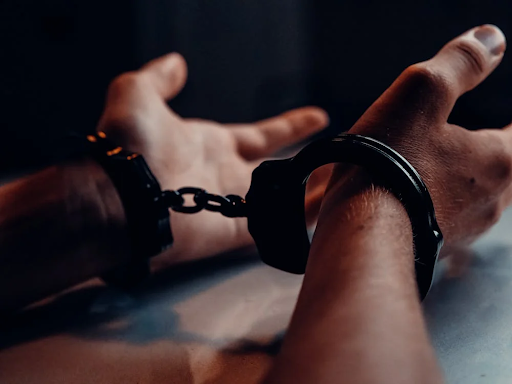
Addiction not only poses significant health challenges but also brings about complex legal implications. For those navigating the precarious path of recovery, understanding the intersection of addiction with the law is crucial. This knowledge helps in managing the consequences of past actions influenced by substance use and ensures the protection of legal rights during the recovery process. This article explores the legal consequences of addiction and outlines the rights that individuals have as they work towards recovery, providing a foundational understanding for those affected and their loved ones.
The Intersection of Law and Addiction
Addiction intersects with various aspects of law, encompassing criminal, employment, and family domains, among others. This intersection creates a multifaceted legal landscape that individuals must navigate, often during a time when they are most vulnerable.
- Criminal Law: The most direct legal implications of substance use are seen in criminal law. Individuals may face charges such as driving under the influence (DUI), possession of illegal substances, or other drug-related offenses. The legal outcomes of these charges can have long-lasting effects on a person’s life, affecting everything from employment opportunities to social relationships.
- Employment Law: Addiction can also impact an individual’s professional life. Employers may have policies in place regarding drug use, and violations can lead to disciplinary actions, including termination. However, laws such as the Americans with Disabilities Act (ADA) provide certain protections for individuals in recovery, recognizing addiction as a medical condition that can qualify as a disability.
- Family Law: In the realm of family law, addiction can influence custody disputes, divorce proceedings, and other familial legal matters. Courts often consider the stability and well-being of children, and evidence of substance abuse can impact custody and visitation rights.
Understanding these legal areas is crucial for individuals affected by addiction to navigate the potential pitfalls and leverage the protections afforded to them during recovery. This awareness ensures that they are better prepared to address legal challenges and minimize the impact on their recovery journey.
Legal Consequences of Substance Use
The legal consequences of substance use can be severe and long-lasting, affecting various aspects of an individual’s life. Here we explore the common legal repercussions that stem from drug and alcohol use and their broader implications.
- Criminal Charges and Their Implications: Individuals with substance use issues may face charges like possession, public intoxication, or driving under the influence (DUI). These charges can lead to a range of penalties from fines and community service to imprisonment. Moreover, a criminal record can hinder future opportunities, such as employment, education, or housing, as many employers and landlords conduct background checks.
- Long-Term Impact on Employment: Beyond immediate legal penalties, a criminal record can carry a stigma that affects career prospects. Certain professions, particularly those in healthcare, education, or government, may have strict policies against hiring individuals with drug-related offenses. This can limit job opportunities and, consequently, the economic stability necessary for sustained recovery.
- Social and Family Relationships: Legal issues can also strain family and social relationships. Legal battles may drain financial resources, cause stress in relationships, and lead to isolation. For parents, drug-related charges can lead to child custody issues, where courts may deem an environment unsafe for children, significantly altering family dynamics.
Rights During Recovery
Understanding one’s legal rights during recovery is crucial for navigating the path toward rehabilitation with assurance and support. Here are some of the critical protections and rights that aid individuals in recovery.
- Protection Under the Americans with Disabilities Act (ADA): The ADA protects individuals who are recovering from drug and alcohol addiction, recognizing them as having a disability. This law prevents discrimination based on this disability in various sectors including employment, public accommodations, and transportation. It ensures that individuals in recovery can access the necessary support and accommodations to reintegrate into society and the workforce effectively.
- Family Medical Leave Act (FMLA): The FMLA enables eligible employees to take unpaid, job-protected leave for specified family and medical reasons, which can include substance use disorder treatment. This act allows individuals to seek treatment without fear of losing their job, providing essential time for recovery and medical care without the added stress of employment insecurity.
- Confidentiality and Privacy Rights: Health Insurance Portability and Accountability Act (HIPAA) ensures that any medical records relating to substance abuse and treatment are kept confidential unless consent is given by the individual. This protection helps individuals seek and receive treatment without the concern of their medical information being publicly disclosed.
Navigating Legal Challenges in Recovery
Recovery from addiction often involves addressing previous legal issues and preparing for potential future challenges. Having a clear strategy for navigating these legal waters is crucial for individuals in recovery. Here’s how to effectively deal with legal challenges during this transformative period.
- Dealing with Past Legal Issues: Many individuals in recovery may have unresolved legal issues such as outstanding warrants or pending cases. It is crucial to address these issues head-on, ideally with the assistance of legal counsel who specializes in addiction-related cases. Legal professionals can provide guidance on steps to take, such as negotiating plea deals or attending court-ordered treatment programs as alternatives to incarceration.
- Interacting with the Legal System: Understanding one’s rights within the legal system is vital. This includes knowing how to interact with law enforcement, what to disclose, and understanding the legal protections available, such as the right to an attorney. For ongoing cases, complying with all court requirements, such as scheduled appearances and mandated treatments, is essential to demonstrate commitment to recovery.
- Securing Legal Representation: For many in recovery, securing competent legal representation can be a challenge due to financial constraints. Many communities offer legal aid services that provide free or low-cost legal assistance to individuals facing addiction-related legal issues. These services can be invaluable in helping navigate the complexities of the law.
Empowering Recovery: Legal Insights and Support
Overcome Wellness & Recovery offers resources and guidance to help you manage the legal aspects of recovery. Whether you’re dealing with past charges, securing employment, or maintaining family stability, Overcome Wellness & Recovery can assist you in using the law as a tool for empowerment, not a barrier.
Take the first step towards securing your rights and reinforcing your recovery path by contacting Overcome Wellness & Recovery today. With the right support and information, you can navigate the legalities of addiction recovery confidently and continue toward a successful, sober life.

